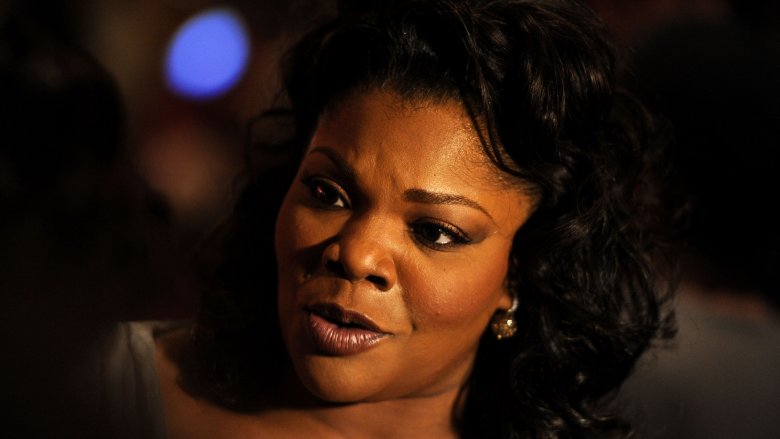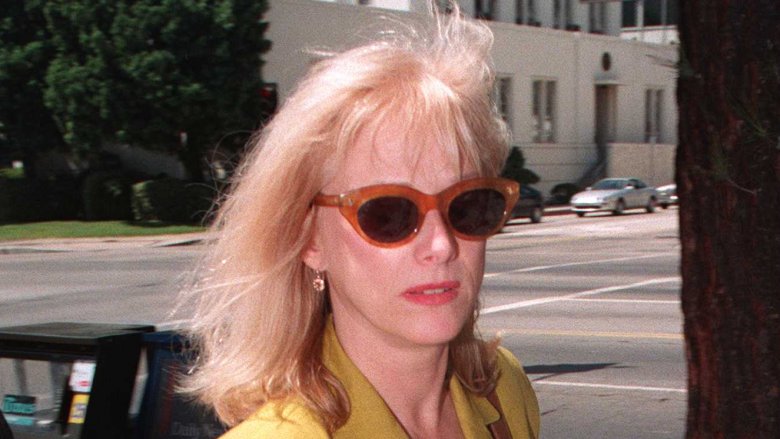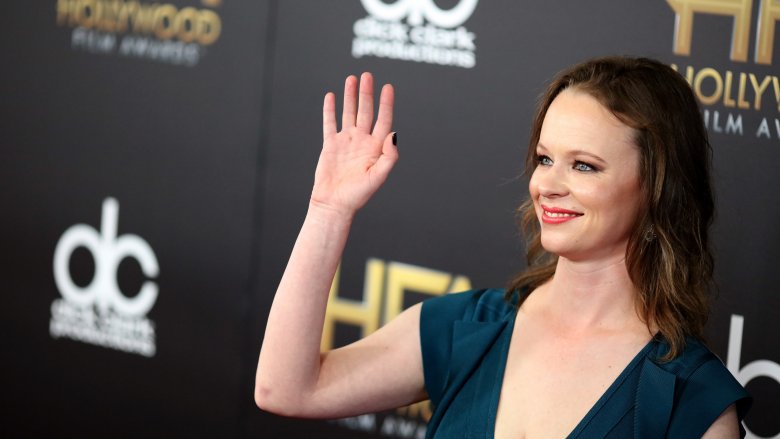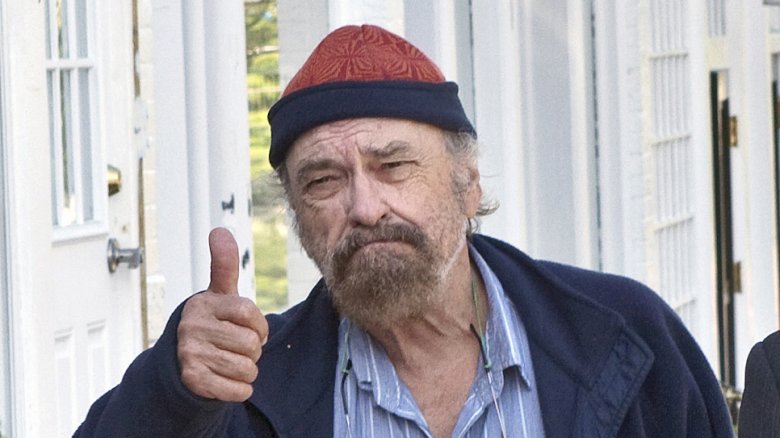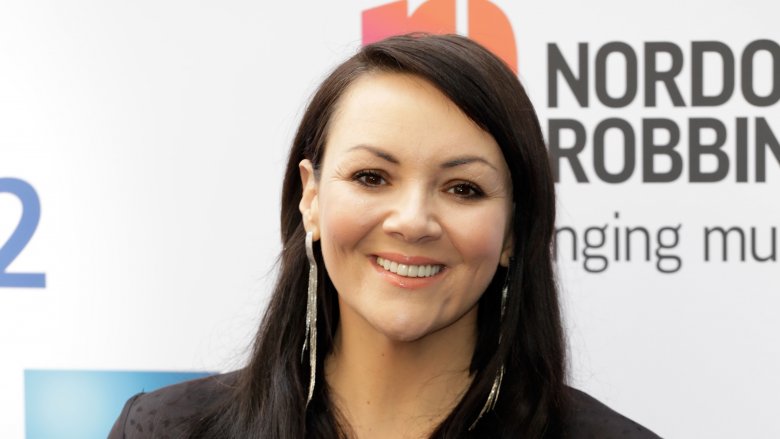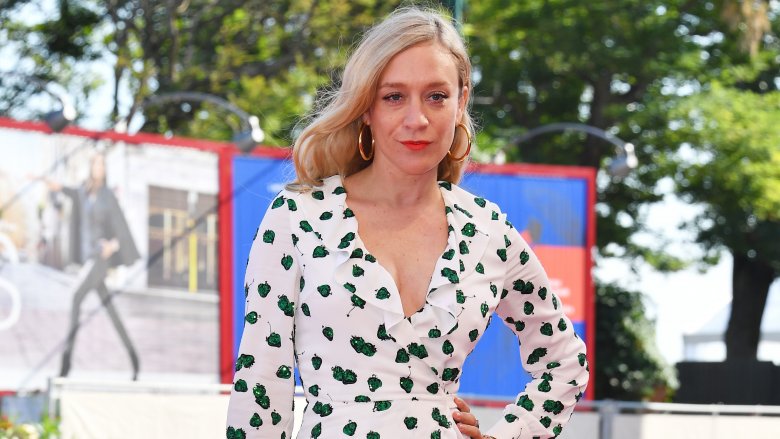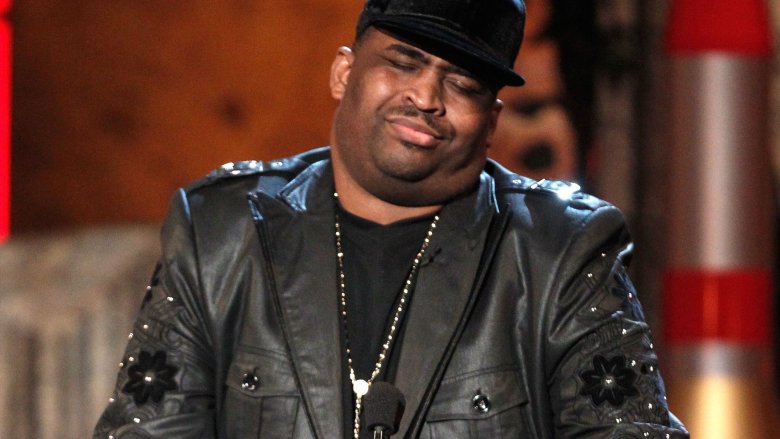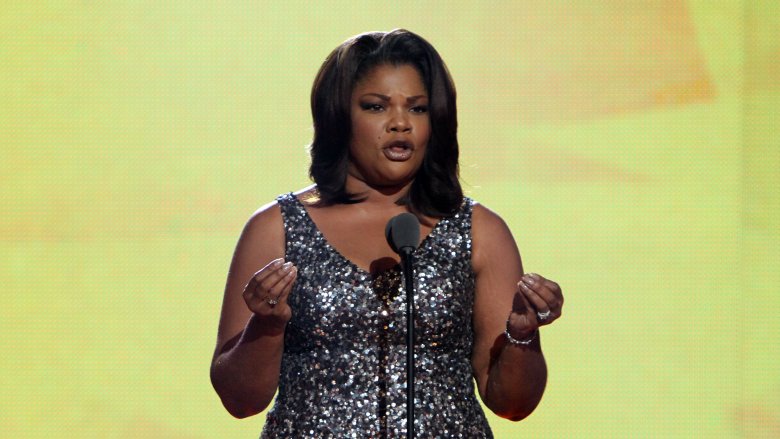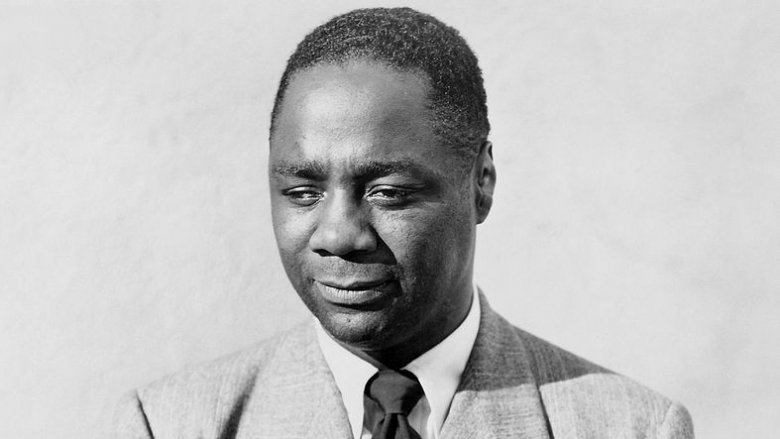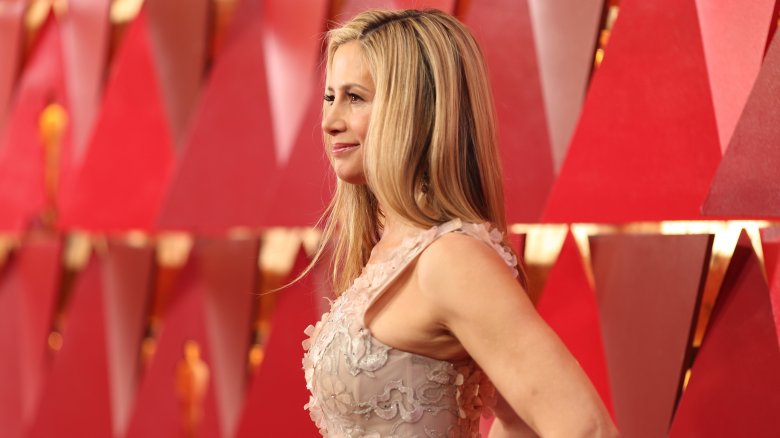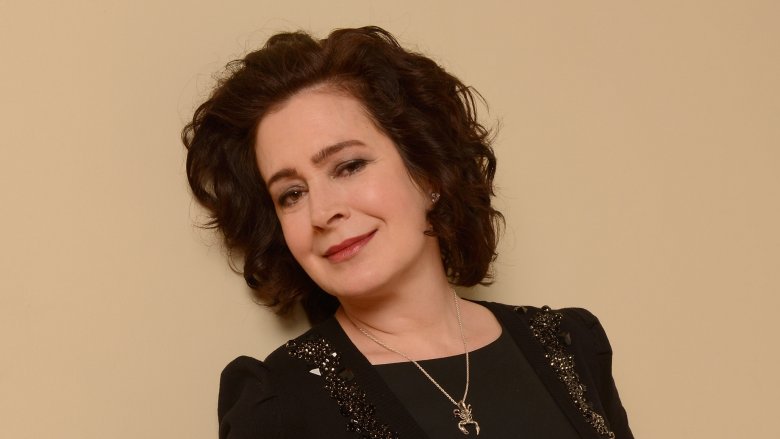Actors Who'd Be More Famous If They Didn't Tick Somebody Off
Some stars, like your Will Smiths and your J-Laws and your Tom Cruises, take up what seems like permanent residency on Hollywood's A-list, destined to grace our multiplex screens and pose for selfies for years and years until they're little more than unrecognizable blobs of Botox and great hair. But fame is a tough nut to crack, and even those who manage to get a taste of it don't get to stick around in the spotlight for long. Sometimes it's bad luck, sometimes it's a poor career choice, sometimes it's bad timing. Often someone younger and shinier gets there ahead of you. And while many stars garner a reputation for being "difficult" in general, sometimes just ticking off the wrong people is all it takes.
Whether it was through their work, a particularly messy relationship, or just refusing to play the game without ruffling any feathers, these actors all got under the skins of people who had the power to do something about it, and their stars never burned quite as brightly as they could have.
Sondra Locke got on Clint Eastwood's ugly side
Relationships can encompass the good, the bad, and the ugly parts of life at the best of times, and a Hollywood relationship is just the same thing hopped up on pills and soaked in overpriced champagne and tabloid ink. And when you get into a relationship with Clint Eastwood, things can turn very ugly indeed.
Sondra Locke started acting in the late 1960s and enjoyed a largely successful career over the next couple decades. She and Eastwood fell for each other in 1975 on the set of The Outlaw Josey Wales and lived together until a very messy break-up in 1989. Eastwood was far from a model boyfriend — Locke had two abortions at his insistence, for example — but it was during the fallout from the break-up that he dealt the brunt of the damage.
As recounted by the Independent, Locke sued Eastwood in 1989 for changing the locks to their home and having her stuff moved into storage without her knowledge. Then, to get her to drop the suit, Eastwood set up a nice development deal for her at Warner Bros. But none of the movies she expected to make as part of the deal ever came to fruition, and it turned out Eastwood had basically just bound her in a shambolic contract and paid Warner Bros to keep her out of a job. She sued him and Warner Bros. for fraud in 1995 and received an undisclosed settlement. Locke championed this outcome as a victory for "the little person," but her career never really recovered.
Ghost World star Thora Birch ends up ghosted by Hollywood
"I know, I'm a total disappointment to everyone," bemoaned Thora Birch's character in 2001's Ghost World, a poster child of millenial snark and alienation if ever there was one, but in reality it seems it's everyone else who has disappointed Thora Birch. Seemingly poised for superstardom after a string of great performances during the late '90s and early 2000s, Birch's career didn't soar as high as people thought it would. While her Ghost World co-star Scarlett Johannson has enjoyed a juggernaut of a career ever since, Birch has drifted into relative obscurity. In a 2014 interview with The Guardian, Birch claimed she simply refused to conform to what was expected of her in terms of her image and her role choices, and she usually voiced her opinion whenever she felt it was warranted. That kind of independent attitude can be risky when you're at the behest of the Hollywood suits and their suitish ways, and by her own admission Birch ticked a lot of people off and the offers stopped rolling in quite as heavily.
Beyond this, the antics of her father/manager/certified mega-creep Jack Birch can't have helped. Known to be a constant, nagging presence on her sets and even going so far as to give the cameramen pointers when shooting her love scenes, her dad's domineering and obtrusive presence seems to have gone a long way toward poisoning her reputation and sabotaging her career. Whether she bounces back remains to be seen.
Not an easy ride for Rip Torn
You might know him for his supporting roles in Men in Black and the Larry Sanders Show, or just his weird adult-film-star-meets-'90s-action-hero name. But what you don't associate Rip Torn with is 1969's cultural phenom Easy Rider, and for that he has director Dennis Hopper to thank. Well, curse.
We can't know whether Torn's career could've ever bloomed as brightly as Jack Nicholson's has, but we do know he was the first choice to play George Hanson in Easy Rider, the role that launched old Jack's career into the stratosphere. During a meeting in 1968 to discuss the part, according to The Guardian, Hopper and Torn got into a very heated argument and someone whipped out a knife. Hopper claimed Torn started it, and on this basis Torn was shut out of the industry for years, putting the brakes on his career in a big way.
It was actually Hopper who instigated the fight and brandished the knife, and Torn successfully sued him for defamation in the '90s after one too many false retellings. Torn has had modest success over the years, but this setback combined with his own self-destructive tendencies proved to be too much for his career to fully overcome. Jack Nicholson became one of the most respected actors of his generation, while Torn was once best known for drunkenly charging into a bank with a loaded pistol because he thought it was his home.
Martine McCutcheon stepped on the wrong dress
If you ever find yourself at one of Elton John's Oscar parties, just be on your best behavior. Your future fame and career prospects could depend on it.
Martine McCutcheon charmed the pants off everyone as Hugh Grant's love interest in Love Actually in 2003 and continues to do so every Christmas during the inevitable reruns. Like a lot of young British actresses at the time, she seemed primed and ready to take Hollywood by storm, but things didn't really work out that way for the former soap star.
McCutcheon's street cred was iffy to being with. During her run in My Fair Lady at the West End in 2001, she missed several shows due to illness and ended up really rubbing her co-star Jonathan Pryce the wrong way, according to The Telegraph. So the theater world wasn't exactly beaming with enthusiasm over her. And then, perhaps unfairly, McCutcheon accrued a reputation as a bit of a diva around Love Actually's release.
But there's really only one instance that speaks to her supposed exile from Hollywood, and that's when she attracted attention at Elton John's 2004 Oscar party for all the wrong reasons. She'd had a bit too much to drink, and at one point snapped loudly at another guest for having stepped on her dress. And ... sometimes that's all it takes. Pretty tame stuff, but word of the incident got around, and McCutcheon's film career found itself interminably stalled.
Chloe Sevigny was ousted to the fringes
It's not always behind-the-scenes drama that does the dirty on these stars' careers. Sometimes it's just the roles and the choices they make as performers that end up vilifying them in the eyes of the Fame Gods. Just ask Chloe Sevigny.
Sevigny starred in 2003's The Brown Bunny, in which she performed not-at-all-fake oral intercourse on co-star/director Vincent Gallo on camera. The first cut of the movie premiered at Cannes and had its defenders, sure, but most audiences completely eviscerated it, with much of the vitriol aimed squarely at Gallo and his obnoxious, throbbing ego. Roger Ebert even designated this early cut "the worst film in the history of the festival." Sevigny's agents dropped her as a client after the movie had premiered and word of mouth did its thing.
Which isn't to say behind-the-scenes nonsense has never plagued Sevigny's career prospects. During a panel at Cannes in 2016 (via Variety), the actress revealed she's had her fair share of run-ins with the creepy gatekeepers of the industry — of whom there seems to be no shortage — refusing advances after auditions and possibly losing out on roles as a result.
But it's doesn't seem like Sevigny is disheartened about all this. Her work prior to The Brown Bunny was chiefly smaller, weirder indie fare, and she's mostly continued operating and excelling along those lines ever since. More prominent mainstream exposure might have been withheld from her in some ways, but the fringe seems to be where she's most comfortable.
Patrice O'Neal wouldn't compromise
Patrice O'Neal was respected and feared in equal measure by his peers in the stand-up world, and his unorthodox, philosophical, and often abrasive approach to his work alienated as many people as it attracted. He was a singular talent, but one who didn't want to succeed on anyone's terms but his own. As you might guess, this approach didn't really lend itself well to mainstream success.
While stand-up was his bread and butter, O'Neal was also a gifted actor and probably could have pursued that path pretty far if he'd played his cards right. But he was a habitual and well-documented bridge-burner, and ended up ticking off enough people that his career never really gained the traction it could have. He wasn't willing to keep his schedule flexible for Spike Lee on 25th Hour, he blew his audition for Everybody Hates Chris because he couldn't bring himself to care enough about it, and he often refused to travel to L.A. for his recurring role in The Office.
He started to wise up a bit toward the end, particularly after Chris Rock drilled some business sense into him on The Opie & Anthony Show in 2007, and it seemed like maybe the fame that had eluded him was just around the corner. His reputation as a comedian's comedian has only grown since his 2011 death, but sadly we'll never know how much further things could have gone.
Mo'Nique didn't play nice enough
When you're campaigning for an Oscar, there's a lot more riding on your behavior than just your own chances of a nice juicy win on the big night. You're expected to behave a certain way and bolster the reputation of the project. Sell people on your movie any chance you get, praise the bigwigs, stroke a few egos. Mo'Nique didn't really do any of that during her best supporting actress campaign for Precious, and she's been paying the price ever since.
She won the Oscar for her performance, but the studio wasn't happy with how she conducted herself during the campaign. As reported by the LA Times, she didn't attend a number of the smaller awards shows, she was making unreasonable demands, and she wasn't doing her part to promote the movie to the studio's standards.
In a 2015 interview, Mo'Nique told The Hollywood Reporter that she'd been "blackballed" from the industry, according to Precious director Lee Daniels, because she didn't play the game on their terms. Daniels confirmed this in an interview with CNN in 2015. She's only had a handful of movie roles since her Oscar, and she railed against the blackballing again in 2017 during a stand-up show, throwing in some unkind comments for Daniels, Tyler Perry, and Oprah Winfrey for good measure. Doesn't seem like she's in any rush to mend any bridges.
Canada Lee and the Hollywood blacklist
In the years following World War II, America was dripping with paranoid dread as the "Red Scare" swept the nation, and the government was deathly afraid of those commie sons-of-guns infiltrating the motion picture industry and getting their grubby little commie paws all over everything. The FBI and congress's House Un-American Activities Committee (HUAC) started identifying those in the entertainment industry who may have had communist leanings and sympathies during the '40s and '50s, and if they worked in film they ended up on the Hollywood blacklist. While most of these blacklisted artists had trouble working in the USA ever again, some still retained an impressive degree of fame throughout their careers and beyond. Think Charlie Chaplin or Orson Welles. Others, however, might as well have been scrubbed from the annals of movie history as soon as their names appeared on that list.
One such forgotten star was Canada Lee, above. A versatile stage and screen actor and an outspoken civil rights activist, according to Shepherd Express, Lee worked with such luminaries as Sidney Poitier and Alfred Hitchcock before the accusations of communist leanings started coming in and he was promptly blacklisted. This was a major blow to his career, and he died in 1952, not long before he was due to testify in front of the HUAC. Like most of the unfortunate souls who ran afoul of the fear-mongering McCarthyists, Lee and his legacy deserve better.
Mira Sorvino and the other women silenced by Harvey Weinstein
Before some of Hollywood's most heinous open secrets starting spilling into mainstream discourse in late 2017, and before the public knew the full extent of Harvey Weinstein's monstrous villainy, your average Joe and Jane would be forgiven for scratching their heads in confusion over Mira Sorvino's disappearance from the spotlight in the late 1990s.
Sorvino won a best supporting actress Oscar in 1996 for Mighty Aphrodite, enjoyed a short period of intense fame and next-big-thingism, and then all but disappeared from our screens. But when the allegations against Weinstein started pouring in like a biblical flood through a rotting dam, things started to make a bit more sense.
Sorvino told The New Yorker that Weinstein got inappropriately physical with her around the release of Mighty Aphrodite, and at one point chased her around a hotel room. By refusing his advances to the best of her ability, a smear campaign was set in motion. Directors Peter Jackson and Terry Zwigoff both later claimed Weinstein shot down any mention of Sorvino when they expressed interest in casting her in their upcoming movies, and it's unlikely these were isolated incidents.
She's not the only one, of course, and this is damage that can't really be undone. Careers were actively ruined by discrediting and silencing women like Sorvino, but at least their voices are no longer muffled.
Sean Young's bad reputation
In this post-Weinstein world, it's becoming clear that "difficult" is often code for "not as easily manipulated as I'd like" or "refused to sleep with me," but that's too much of a mouthful and a little too incriminating for Hollywood's slimiest power-wielders. So they go with "difficult." Sean Young has been labeled "difficult" for most of her career, and while she can't be said to be entirely innocent — sometimes "difficult" really does mean just that — there does seem to be quite a bit more to her story.
A compelling screen presence, the Blade Runner star has long carried a reputation for self-sabotage and for destroying her own career prospects. But in a 2015 interview with The Guardian — and in the comments section of that interview — the actress decided to iron out some misconceptions, saying the reality is more a mixture of her own self-destructive tendencies and relentless discrediting from the press or people who just didn't like her. And much like Chloe Sevigny and Mira Sorvino, among others, sometimes all she did was turn down a particularly powerful sleaze bag. Even considering the mistakes she made — like drunkenly heckling a speech at a 2008 awards show — it seems she wasn't afforded the same second chances some of her male peers were. She was ridiculed for showing up to auditions dressed as Catwoman for the Batman Returns role, for example, but fanboys would probably weep for joy if, say, Robert Downey Jr. had done the same thing with Iron Man in 2007.
